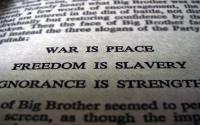 Most countries are still well adrift of emission targets |
2 May 2007Andrew Walker
It is the third such summit this year held by the Intergovernmental Panel on Climate Change (IPCC).
But while it has green motives, this abatement of emissions under discussion involves economic costs prompting the question of how much of it is worthwhile?
It is a controversial issue which will influence the debate in coming months about what action governments should take.
Judgements about what to do about climate change involve calculating and comparing two things.
'The biggest unknown'
One is the costs that rising temperatures will bring, such as lost farm output, building defences against rising sea levels and lost biodiversity.
The other is the cost of avoiding that damage by, for example, switching to sustainable energy such as wind which doesn't produce greenhouse emissions but is more expensive, at least in the short term.
Both are fraught with technical difficulty, uncertainty and are controversial.
The costs of inaction - often called "business as usual" - include many things that are extremely difficult to quantify in economic terms - species extinctions for example.
There is huge uncertainty as well - how much will the incidence of diseases such as malaria increase?
And perhaps the biggest unknown of all is how likely are the most severe outcomes - such as several metres of rising sea levels if the ice sheets of west Antarctica or Greenland were lost?
 The Bangkok summit has drawn climate change activists. |
One of the most extensive efforts so far was a report commissioned by the British government from its chief economist, Sir Nicholas Stern, published last year.
His conclusion was that failing to act would lead to damages that could easily amount to twenty per cent or more of world economic output.
By contrast a commitment of only one per cent or so would be needed to avoid the worst effects, Sir Nicholas argues.
'Absurd'
The case for vigorous early action to stabilise greenhouse gas levels is therefore economically overwhelming, on this analysis.
The report has met a number of criticisms from economists. Perhaps the most controversial area is the method of comparing costs at different times.
That has a huge impact because the costs of curbing emissions as Sir Nicholas suggests would arise now and in the next few decades while the benefits of doing it stretch centuries into the future.
Professor Sir Partha Dasgupta of Cambridge University argues that Sir Nicholas calls for too much sacrifice now when people in the future are likely to be better off and better able afford to deal with climate change.
Meanwhile Professor William Nordhaus of Yale University in the United States says that the methods used in the Stern Review means that very small uncertain problems in the distant future can appear to justify large investments now to prevent them.
That, he says, would be absurd.
He also argues that the report is selective in its choice of climate damage estimates, emphasising those with high figures.
Inform debate
Professor Robert Mendelsohn, also of Yale, is highly sceptical that emissions can be curtailed and greenhouse gas concentrations stabilised for as little as the Stern report suggests.
He raises doubts about whether the cost of non-emitting energy will fall as rapidly as Sir Nicholas anticipates.
And he points to the uncertain prospects for storing carbon dioxide, a technology which features in the Stern report's proposals.
None of these three critics are disputing the case for some action on climate change. What they reject is the case for going as fast as Sir Nicholas recommends.
These questions won't be resolved in Bangkok. They will inform debate for a long time about what action the world's governments should take.






